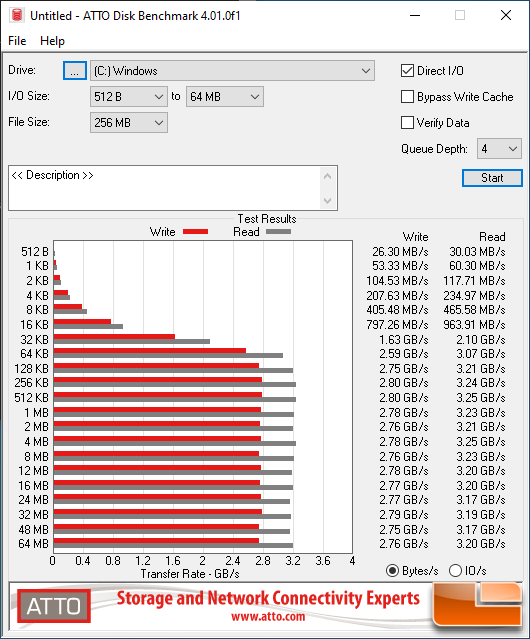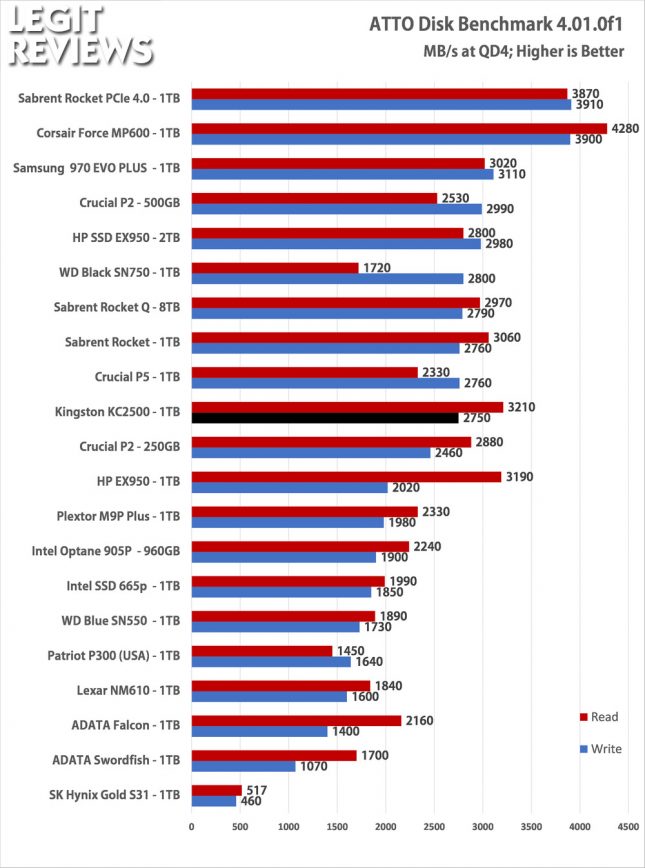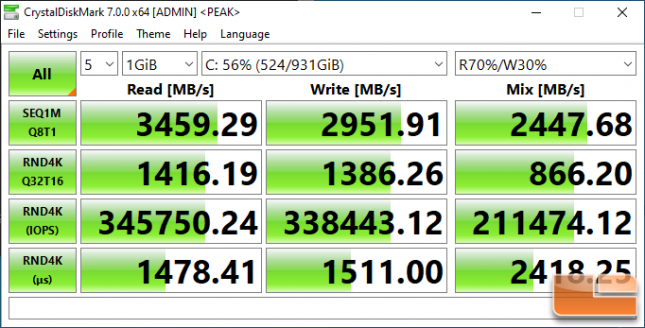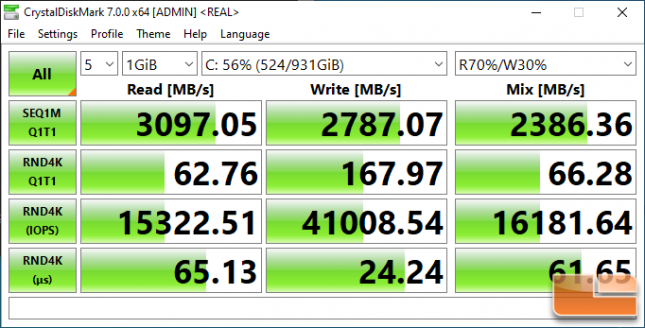Kingston KC2500 1TB NVMe SSD Review
ATTO & CrystalDiskMark
ATTO v4.01.0f1
ATTO is one of the oldest drive benchmarks still being used today and is still very relevant in the SSD world. ATTO measures transfers across a specific volume length. It measures raw transfer rates for both reads and writes and places the data into graphs that can be very easily interpreted. The test was run with the default runs of 0.5KB through 64MB transfer sizes with the total length being 256MB.
ATTO Disk Benchmark:
Benchmark Results: On ATTO Disk Benchmark found the Kingston KC2500 1TB NVMe SSD peaked at 3.25 GB/s read and 2.80 GB/s write at the standard queue depth of 4.
When we chart the 128KB test results from ATTO Disk Benchmark, the Kingston KC2500 finishes in the middle of the pack, but is within 50 MB/s of the five drives above it with respect to sequential write performance. It has the 3rd highest sequential read speed for the 128KB file size, which is impressive! Don’t let the middle of the chart finish paint the wrong picture!
CrystalDiskMark 7.0.0 x64
CrystalDiskMark is a small benchmark utility for drives and enables rapid measurement of sequential and random read/write speeds. Note that CDM only supports Native Command Queuing (NCQ) with a queue depth of 32 (as noted) and shows the highest score of five runs.
CystalDiskMark:
Benchmark Results: The Kingston KC2500 1TB drive came in with scores of 3459 MB/s read and 2952 MB/s write on CrystalDiskMark 7. This drive is rated as being up to 3500 MB/s read and 2900 MB/s write, so we are close enough to those speed ratings to be happy. Keep in mind that we aren’t testing a bare secondary drive, but rather a system drive that is filled 55% full!
The Random 4K QD1 performance is also very strong with nearly 63 MB/s read and 168 MB/s write speeds! It hasn’t gotten better than that on our test system from a NAND powered drive! Kingston rates this drive as having up to 375,000 IOPS read and 300,000 IOPS write and we got 346,000 IOPS read and 338,000 IOPS write!
Let’s look at some other benchmarks!




